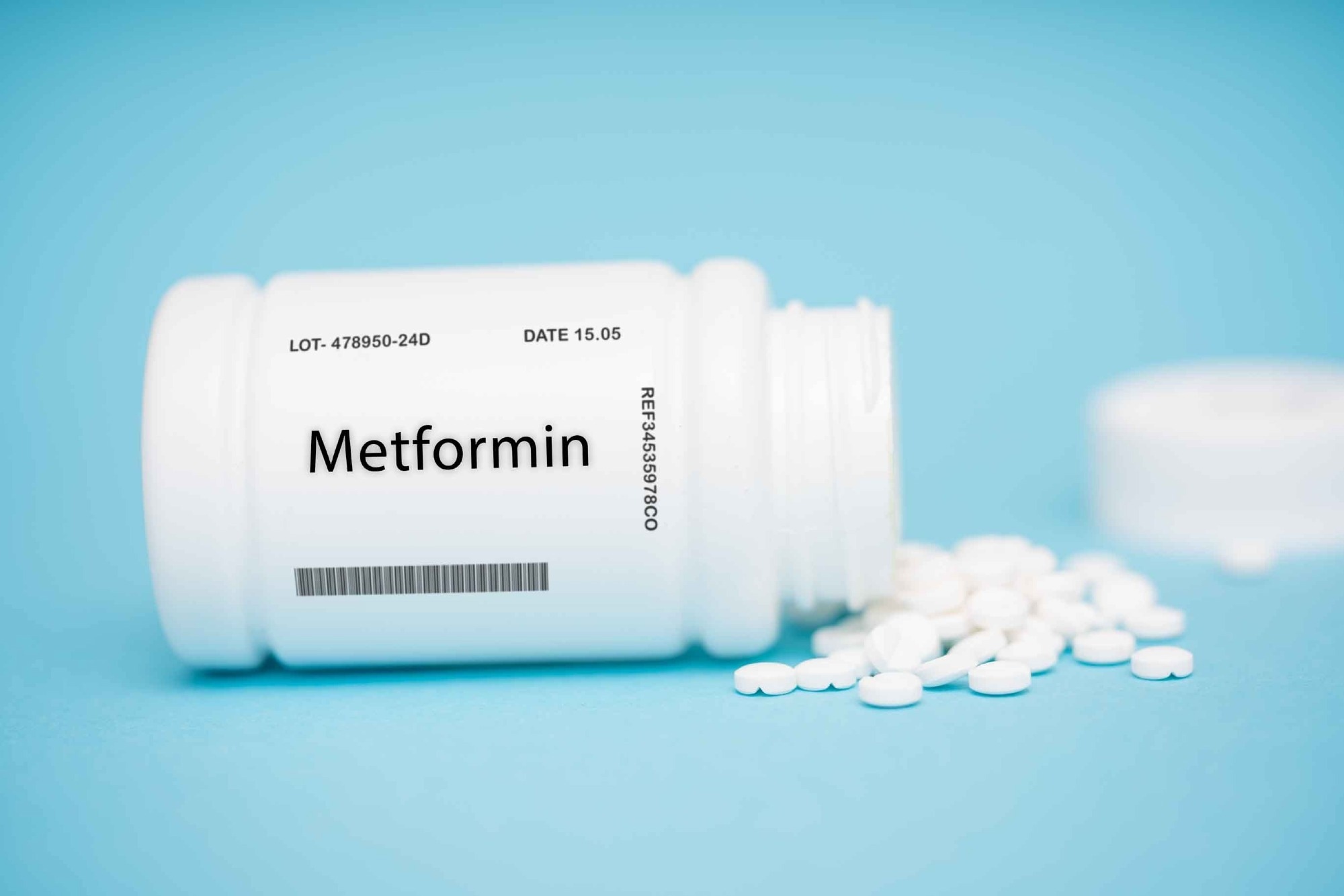A common and inexpensive diabetes drug could significantly lower the risk of Long COVID in overweight individuals, opening new possibilities for prevention strategies in the pandemic’s long tail.

Study: Effect of Metformin on the Risk of Post-coronavirus Disease 2019 Condition Among Individuals With Overweight or Obese: A Population-based Retrospective Cohort Study. Image Credit: luchschenF / Shutterstock
In a recent study published in the journal Clinical Infectious Diseases, researchers conducted a large-scale retrospective analysis to investigate whether the common diabetes medication metformin could reduce the risk of overweight or obese individuals developing Long COVID in a real-world setting.
The study leveraged data from over 1.8 million observations from 624,308 individuals in the UK and found that overweight/obese patients who initiated metformin within 90 days (across three sequential trial emulations) after a COVID-19 infection demonstrated a 64% reduction in their likelihood of a subsequent Long COVID diagnosis.
These findings suggest that this inexpensive drug may offer a potential preventive benefit for individuals with higher weights, thereby improving the quality of life for this at-risk population.
Background
Despite the acute phase of the coronavirus disease of 2019 (COVID-19) having passed, widespread reports and a growing body of evidence highlight that many survivors continue to suffer from the pandemic's aftermath. Colloquially called "Long COVID", post-COVID-19 condition (PCC) is an umbrella term for complex, multi-system disorders characterized by over 200 possible symptoms, including persistent fatigue, cognitive impairment ("brain fog"), shortness of breath, and insomnia.
The World Health Organization (WHO) officially defines PCC as symptoms lasting at least two months, typically starting within three months of the initial infection. UK surveys reveal that more than 1.9 million people (2.9% of the population) have Long COVID as of March 2023, underscoring the importance of identifying and mitigating risk factors.
Unfortunately, since the mechanisms underlying Long COVID remain largely elusive, recent research has aimed to identify common and affordable interventions to help COVID-19 patients and inform risk mitigation policies. A previous randomized trial, COVID-OUT, reported reduced PCC incidence as a prespecified secondary outcome in overweight/obese individuals, though real-world applicability remained uncertain.
Metformin is a first-line therapy for type 2 diabetes (T2D) and is best known for its ability to lower blood glucose. However, the drug has demonstrated powerful anti-inflammatory properties and has been shown to activate a key cellular energy sensor, AMP-activated protein kinase (AMPK), which may interfere with viral replication; however, the precise mechanisms remain unclear.
About the study
The present study aims to establish the efficacy of metformin for preventing Long COVID in a real-world setting. The study design was retrospective and leveraged anonymized primary care data from the UK's Clinical Practice Research Datalink (CPRD) Aurum database. Notably, the database covers nearly 25% of England's population.
Study inclusion criteria included adults with clinically validated overweight or obesity (defined as a Body Mass Index [BMI] of 25 kg/m² or higher) who were diagnosed with COVID-19 between March 2020 and July 2023. Patients with medically recorded metformin use or other glucose-lowering drugs prior to their COVID-19 infections or metformin contraindications were excluded from subsequent analyses.
The study employed a statistical method known as "sequential target trial emulation" (with three entry points) to simulate the design and potential findings of a randomized controlled trial. Analyses involved comparing the one-year risk of Long COVID in patients who initiated metformin within 30 days of three staggered baselines (diagnosis, 30 days post-diagnosis, and 60 days post-diagnosis) to those who did not. The primary outcome of interest was a clinically validated PCC diagnosis or the emergence of new WHO-listed symptoms (without pre-infection history) between 90 and 365 days after infection.
Study findings
After applying the exclusion criteria, the final study included 624,308 adults, 2,976 of whom initiated metformin after infection. Study findings revealed a statistically significant association between metformin use and a reduced risk of Long COVID. Specifically, the intention-to-treat analysis found that metformin initiators demonstrated a 64% reduction in PCC risk (Hazard Ratio [HR] 0.36; 95% Confidence Interval [CI], 0.32–0.41) compared with non-initiators.
Notably, these results translate to a one-year absolute risk difference of -12.58%, suggesting that approximately eight overweight/obese individuals need to be treated with metformin to prevent one Long COVID case.
Per-protocol analysis confirmed these findings (HR 0.36; 95% CI, 0.33–0.41), with the observed association remaining statistically significant across all investigated subgroups, including different age groups, genders, BMI categories, diabetes status (51.9% of metformin users had T2DM), and during periods dominated by both the Delta and Omicron variants. A negative control analysis revealed no association with cancer risk (HR 1.13), supporting the robustness of the findings.
Conclusions
The present study demonstrates the potential benefits of metformin in the effort to mitigate Long COVID, specifically in overweight/obese individuals. This extensive, real-world study provides evidence suggesting that early treatment with metformin may significantly reduce the risk of developing Long COVID in this population. As an observational study, these results indicate association but cannot prove causation.
While its mechanisms remain unclear, the drug's potential anti-inflammatory and antiviral effects are thought to be possible contributors. Crucially, the findings may not generalize to individuals of normal weight. The next step is to conduct large-scale, randomized controlled trials to confirm causality and clarify the role of metformin in the global strategy against post-COVID-19 conditions.